The evolutionary nutrition of seed oil consumption
Why seed oil consumption might make evolutionary sense
We continue where we left off on seed oils.
Before continuing, I want to again make a few things clear:
I almost never consume any seed oils and only consume them on the uncommon occasion that I consume ultraprocessed foods;
There may be benefits to restricting seed oils for weight loss, due to the restriction of the sorts of foods that tend to contain them;
Seed oils have a wide range of biological impacts on the body, and this post does not enumerate most of them, just a small number;
Some individuals may experience opposite effects from seed oils as the average individual does (will discuss this more in the coming weeks);
The following posts are merely exercises in scientific thinking. They are not recommendations to consume seed oils!
In the first part of this series, we saw that epidemiological studies, as well as human trials looking at inflammatory markers, clearly show that plant oils do not cause inflammation, and their consumption is strongly associated with lower risk of death.
This effect is probably mediated by a reduction in LDL cholesterol, a cause of heart disease.
In response, Paleo/keto/carnivore influencers counter that, despite these findings in the epidemiological literature and human trials, diets high in polyunsaturated fatty acids are not evolutionarily appropriate:
As the argument goes, hunger-gatherers ate animals in the past, which are high in saturated fats, not polyunsaturated fats. Therefore, according to these Paleo influencers, we can ignore epidemiology and short-term human studies and recommend that everyone just “eat like their ancestors”.
Yet, the evidence says the exact opposite: to get fatty acids in the same proportions as our ancestors, we should in fact supplement with seed oils.
Let’s look at that evidence.
First, the fat content of muscle meat of domesticated animals is much higher than their wild cousins. If our ancestors ate only muscle meat, they would eat a far lower amount of animal fat than we do.
Data from http://nutritiondata.self.com
Next, the fatty acid composition of the muscle meat of wild game contains twice the concentration of polyunsaturated fats (the fats in seed oils) as a % of total fat, when compared to domesticated meat, and 50% less saturated fat.
Data from https://pubmed.ncbi.nlm.nih.gov/21471535/
(Full disclosure: Data for chicken were excluded from the above graph to make it "cleaner": chicken, while much fattier than virtually all wild meat, does have a similar fatty acid composition as wild meat, in contrast to pork, beef, and lamb.)
Eating domesticated meat therefore blasts saturated fat intake higher than almost anything found in nature.
Eating steak is from this point of view about as nutritionally ancestral as eating donuts.
Now, since most of the muscle meat is very lean, the fattier organs of wild game contain most of the fat content of meat consumed by hunter-gatherers. And those organs are even higher in polyunsaturated fatty acids than the wild muscle meat.
Data from: https://mdpi.com/2304-8158/9/7/923
It follows that polyunsaturated fat intake from meat by hunger-gatherers is much higher than polyunsaturated fat intake from meat by modern people.
Data combined from previous two sources.
To eat “ancestrally”, one would therefore consume only small quantities of domesticated meat, along with organs—or alternatively, seed oils.
Seed oils therefore may make up the shortfall in polyunsaturated fats that our hunter-gatherer ancestors would have consumed--or it may compensate for the excess saturated fat content of domesticated meat.
Is this why seed oil intake is associated with superior health outcomes?
Unfamiliar with the research, the Paleo influencers actually promote diets at odds with the epidemiological research, the short-term human clinical trials, and, indeed... at odds with the dietary composition of our hunter-gatherer ancestors.
The problem of megafauna for this perspective will be discussed in a later post. I believe it is not a serious problem if one considers it carefully.
(Note: A lot of this post is intentionally written in a playfully provocative way. I will reiterate that I rarely consume seed oils and am playing Devil’s advocate. That said, not withstanding the issue of megafauna, I struggle to find the problems with the argument. Other aspects of seed oil production, intake, etc. will be addressed in the immediate future.)


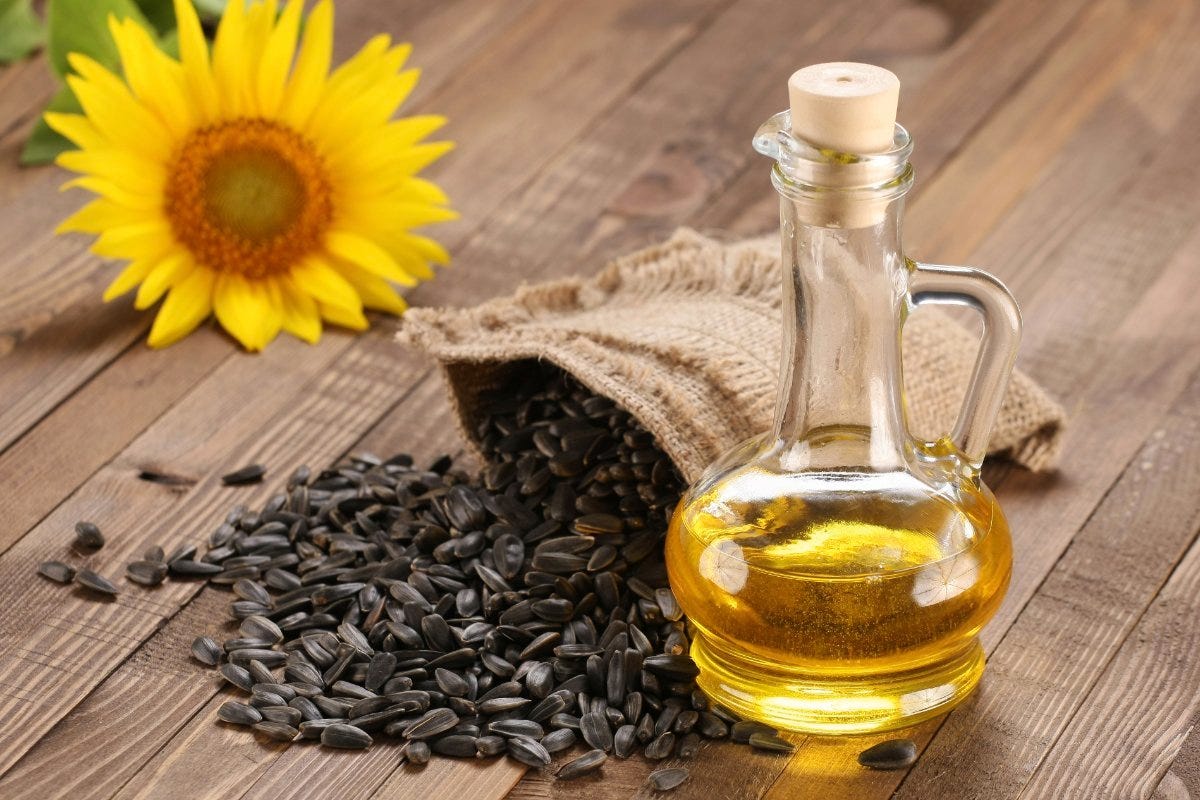
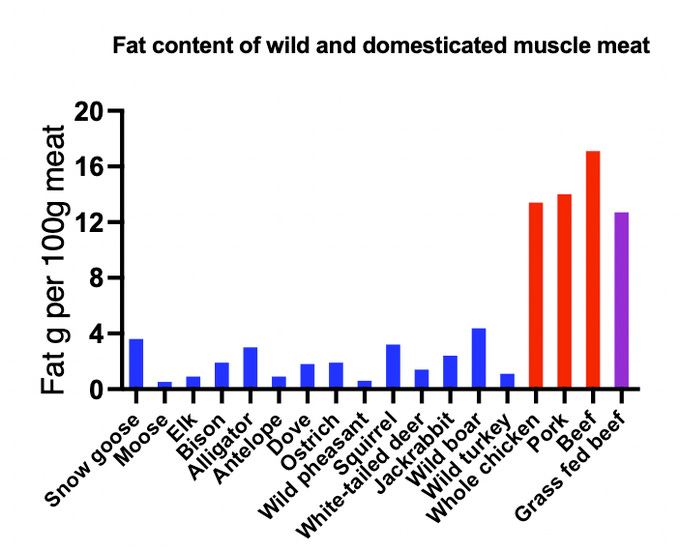
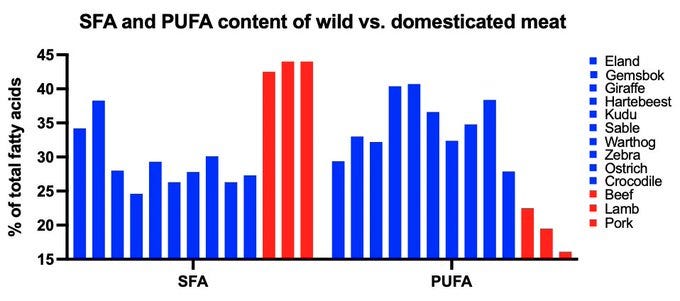
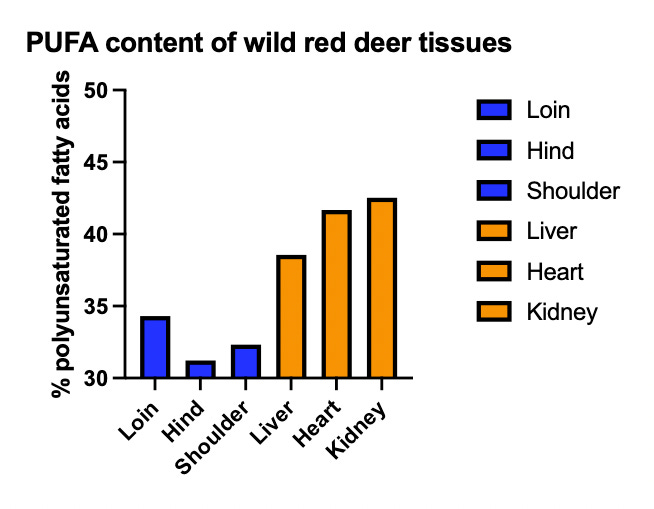
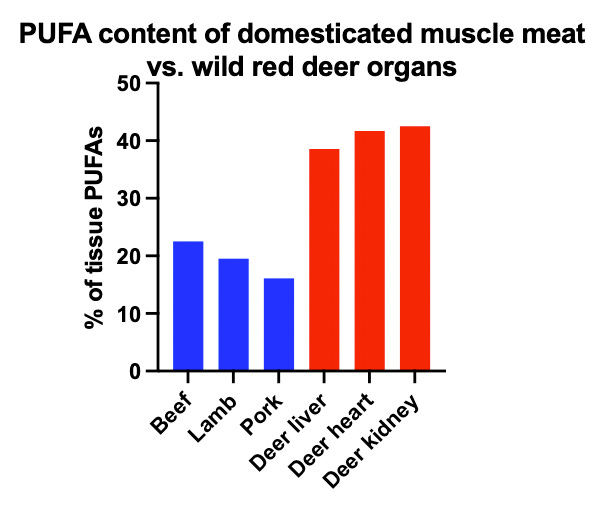
Hasn't seed oil consumption increased at the same time than the increase in obesity / metabolic syndrome, while saturated fats are consumed in "high" quantities for far longer (french paradox?) even at the time when people didn't suffer from these diseases. If this hold true, it would mean it's excluded that saturated fats are the culprit and that seed oils are a good *candidate* (seed oils consumption is not the only thing that has increased, as you implied ultra-processed foods have too).
Also, wild animals have less total fat as your graph shows, such that the absolute amount of poly-unsaturated fats consumption of hunter-gatherer would be (far?) lower than the consumption of poly-unsaturated fats that is the norm today; even if wild animals that they consumed have relatively higher PUFA proportions?
Finally, PUFA consumption is pervasive and someone really need to make great effort to avoid it totally (sometimes even so-called "high saturated fat" diets studied are "high" PUFA diets too), so aren't RCT unable to show the effect that very small amount of PUFA has on the body (provided that non-linear effects of PUFA consumption exist) as the placebo would be "contaminated" too?